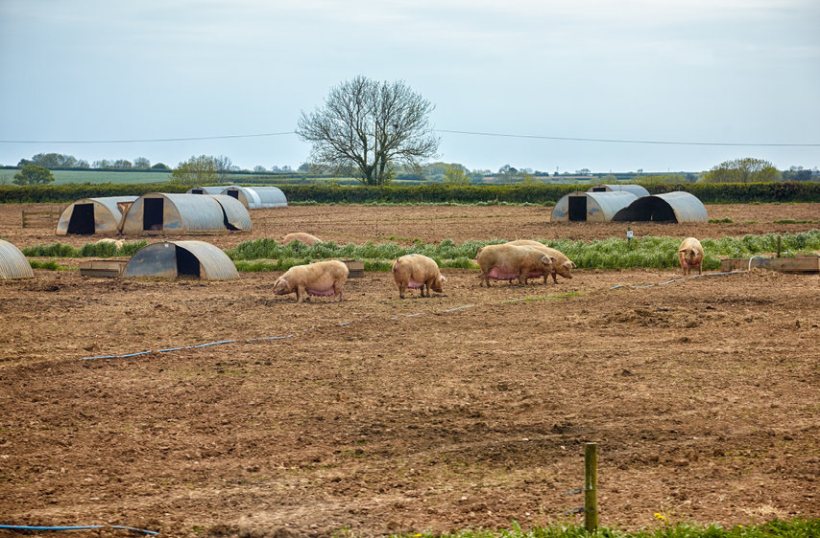
Government failure to tackle labour shortages in the UK food and farming industry could cause it to shrink permanently, MPs have warned.
The Environment, Food and Rural Affairs Committee (EFRA) has said in a new report that the UK's largest manufacturing sector faces 'permanent damage'.
Last year, farmers faced an extraordinary situation – crops were left to rot in the fields and healthy pigs were culled due to a lack of workers, caused by a combination of the pandemic and Brexit.
The pig sector was particularly affected, with 35,000 pigs being culled due to a lack of butchers in plants to process them.
EFRA said it was frustrated by the 'reluctance' of the government to engage with the food and farming industry over such worker shortages.
Despite attempts by industry groups, MPs who sit on the committee said that ministers had failed to understand the issues and even sought to "pass the blame onto the sector."
Their report urges the government to have a 'radical rethink' to prevent future interventions coming too late.
Revised immigration measures could address the current crisis, for example, a review of the Skilled Workers Visa scheme to ease current complexity and costs.
However, a reliance on overseas labour must be reduced in preference for a long-term labour strategy, the report said, one that grows and develops home-grown talent.
This could combine attractive education and vocational training packages with the deployment of new technology, the report said.
While the committee welcomes some of the government’s work in the area, it warns that without fundamental change, the UK faced a "chain reaction of wage rises, leading to price increases and food production being exported abroad".
The chair of the EFRA Committee, Neil Parish MP said the government’s attitude to the plight of food and farming workers was 'particularly disappointing'.
“While some of the reforms put forward by government have helped in the short term, and we agreed that we must look to expand the domestic workforce – this won’t happen overnight.
"In the meantime, it must use the powers available – including over immigration policy - to support the sector, otherwise we will export our food production and import more of our food.
“Even more importantly, government must change its attitude to the farming sector – trusting them and acting promptly when they raise concerns. Our food and farmers depend on it."
